PRESTO PLANS
Sent straight to your inbox
CLICK HERE TO ACCESS
Sign up to receive 10 ready-to-use ELA resources your students will love!
10 FREE ELA RESOURCES
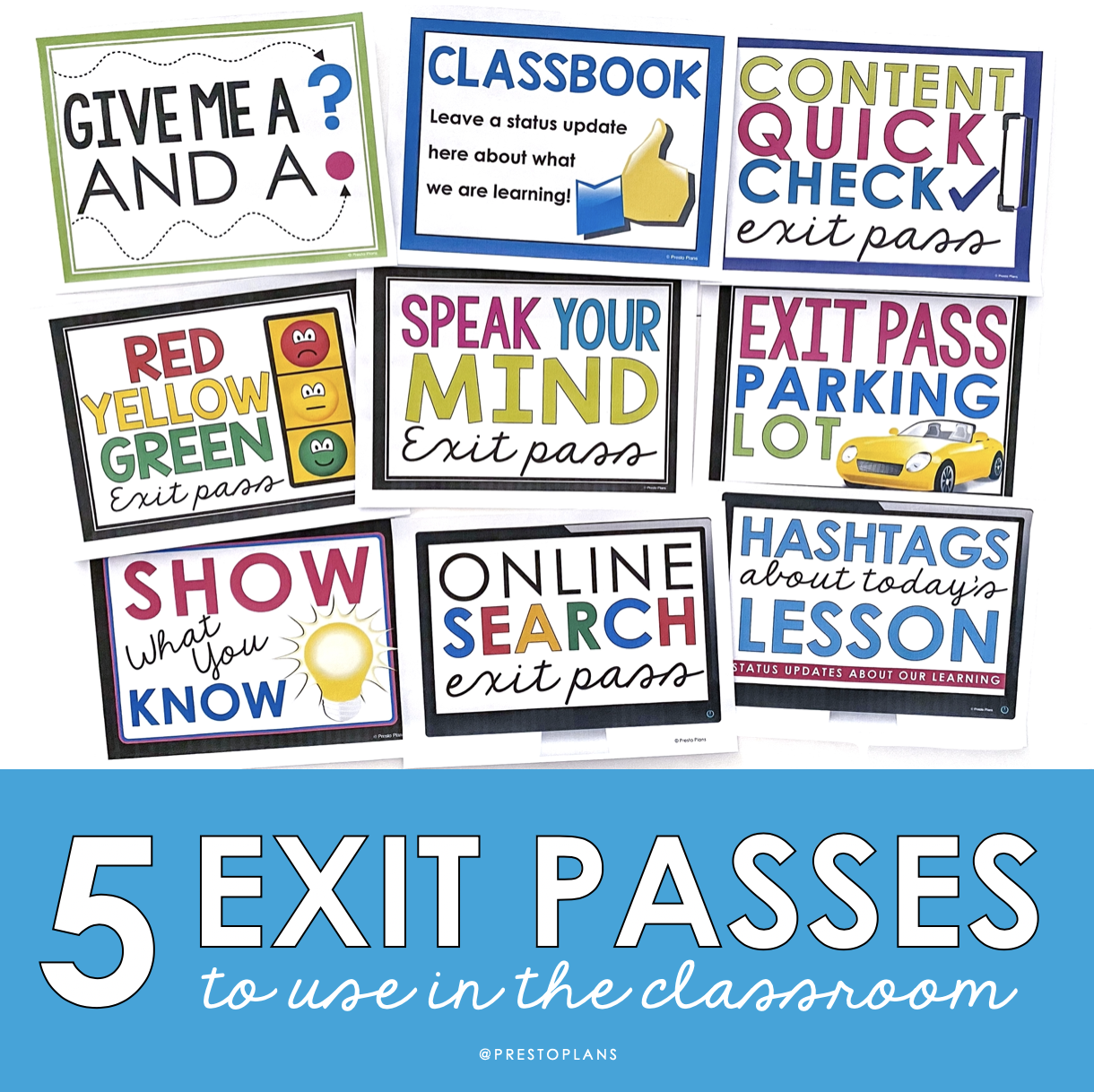
5 Types of Exit Passes to use in the Classroom
Exit slips (also known as exit passes) are a type of informal assessment tool used by teachers to check student understanding and engagement. As their name suggests, completed exit passes serve as the students’ tickets to leave the classroom at the end of class. Often, they prompt students to answer a specific question about something covered in class that day. However, they can also be used to get students to reflect on their learning more broadly.
Exit passes can provide a snapshot of what students have absorbed at the end of your lesson. The answers you receive can give you insight into what you might need to spend more time on as a class on the following day. They also help you understand where each of your students stands individually with respect to your class material.
Although exit slips are typically informal and used at the end of class, there are many creative ways that you can implement these in your classroom routine. While they are often distributed in the form of small paper “slips,” they can also be put up on the wall and used as a colorful classroom display. Here are five different types of exit passes you can bring to your classroom immediately.
1. Online Search Exit Pass
The first type of exit pass I want to suggest is an online search exit pass. For this one, your students will write a question or a statement in the search bar that relates to the lesson that day. The question could be something they develop on their own, or it might be a question that you provide them.
To complete this exit pass, each student will need to write their answer in the search results area. For example, if your class that day included a lesson on Martin Luther King Jr., you might ask students “Who was MLK?” in the search bar. In this case, they might write something along the lines of this below:
- American clergyman, activist, and leader in the African-American Civil Rights Movement. He is best known for his role in the advancement of civil rights using nonviolent means and for his speech “I Have A Dream.”
2. Give Me a “?” and a “.”
Another style of exit passes that you might use in your classroom is called Give Me a “?” and a “.” Of course, the question mark in the name refers to a question and the period refers to a statement. To complete this exit slip, students will need to provide a question AND a statement related to what they learned in class that day.
If the same question is written on many of the exit passes, then you know that you need to spend more time on this topic. Alternatively, if the same statement is correctly written on several of the exit passes, you know that this idea was largely grasped by the students and you can move on from it.
Students can make this type of exit pass themselves by simply drawing two boxes on a piece of paper. They can write their question in one box and their statement in the other. If there is enough time left in class, you may have some students from one side of your class provide a statement and the other provide questions. Students can also feel free to include more than one of each on their passes!
3. Red, Yellow, Green
The Red, Yellow, Green exit pass is a simple and effective way to gauge student understanding at the end of your class. For this one, students will be given a page with three boxes. Each box is labeled with the colors red, yellow, and green, with each color corresponding to levels of understanding.
- In the red box, students will write something that they did not understand from class that day.
- For yellow, they will write something that they have some questions about.
- In the green box, they will write something that they really understood well.
I like this type of exit pass because it communicates the idea that it’s ok to not understand everything immediately. It can also serve as a confidence booster because it helps students recognize that they did understand some things from the lesson, even if they did not grasp everything yet.
If students are having difficulty filling out the green section, ask them to write something they’d like to learn in the future that is relevant to the topic. Or you can give them a question to explore themselves as a homework task.
4. Exit Pass Parking Lot
This next exit pass idea will combine what different students have learned that day in another colorful classroom display! For the exit pass parking lot, students will each receive a car-shaped piece of paper on which they can write what they learned that day in class. Make sure students write their names on the exit passes. On the way out of class, they will “park” them together in a parking lot display on the wall.
Another way to do this is to get students to work with the people sitting beside them to fill a parking lot including just four parking spots, for example. Students can draw four parking spaces on a sheet of paper for them and three people sitting near them. You can even get students to draw and cut out the car shapes as well!
5. Hashtags About Today’s Lesson
Last but not least is the hashtags about today’s lesson exit pass idea. For this one, students will write an online status update for something they learned in class. First, they will add their name as a handle next to the @ symbol with no spaces. Then, after writing the status update, they will add any relevant hashtags. Hashtags (#) are used on social media to categorize information. So, the hashtag should relate directly to what the student writes. It also should have no spaces between words. Try this one for free here!
There you have it! I hope these classroom exit passes can make your life a little easier. If you’re interested, you can grab a ready-to-print bundle that includes each of the exit passes mentioned above (and more). Just click the image below.
Also, if you’re looking for more teaching tips, strategies, and resources, click here!
Search the blog for what you are teaching
GIVEAWAYS
sent straight to your inbox!
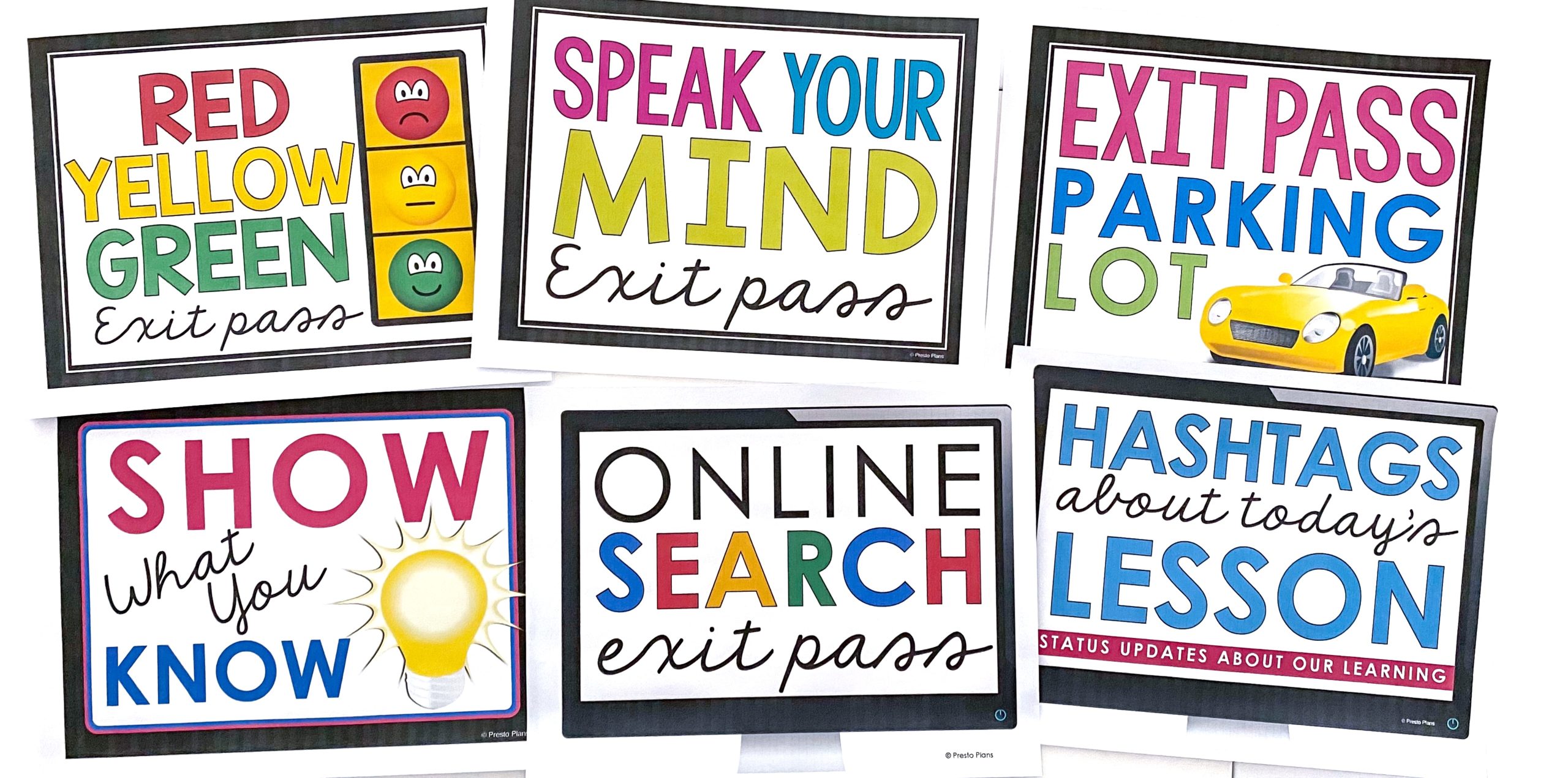
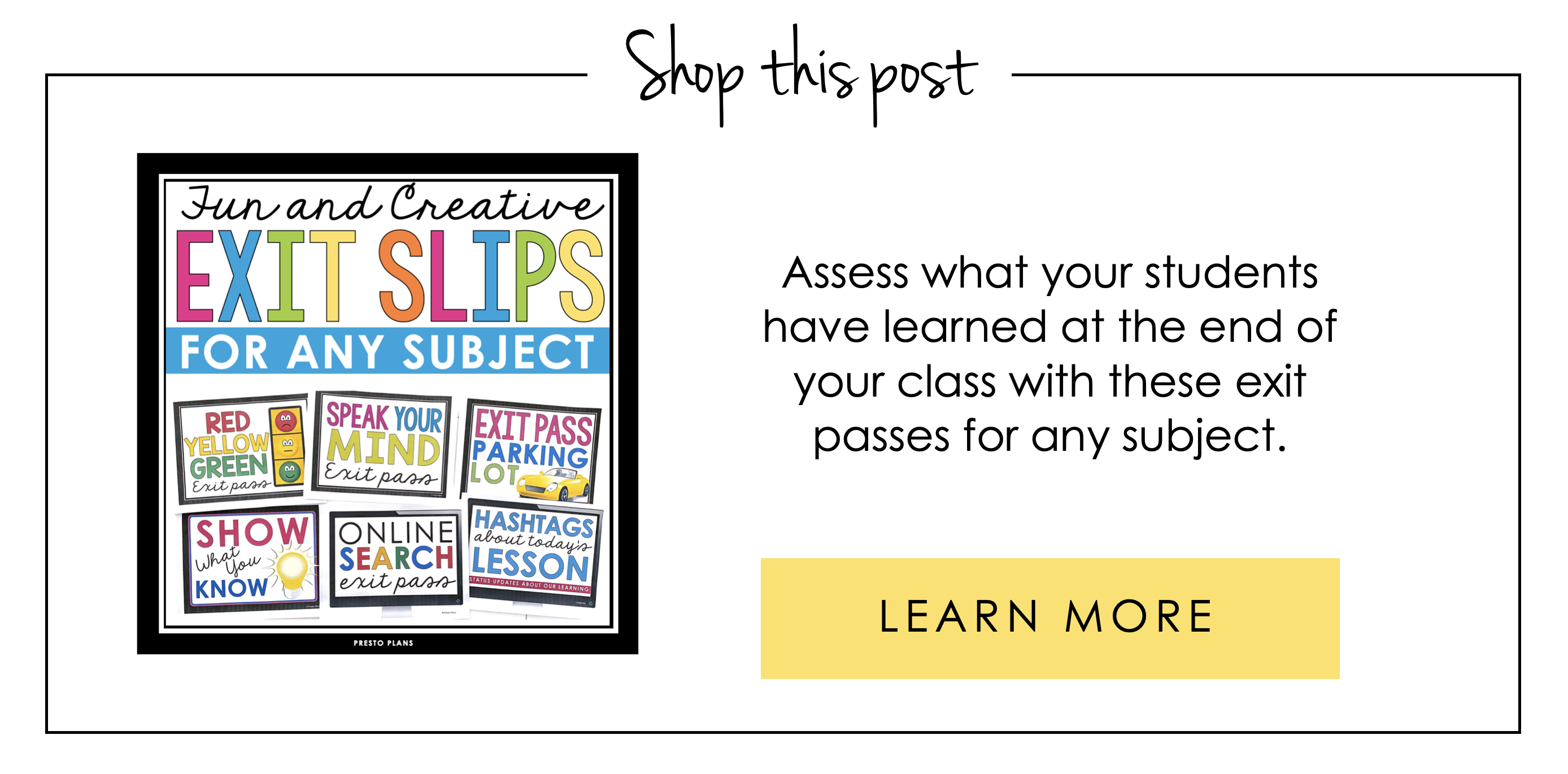
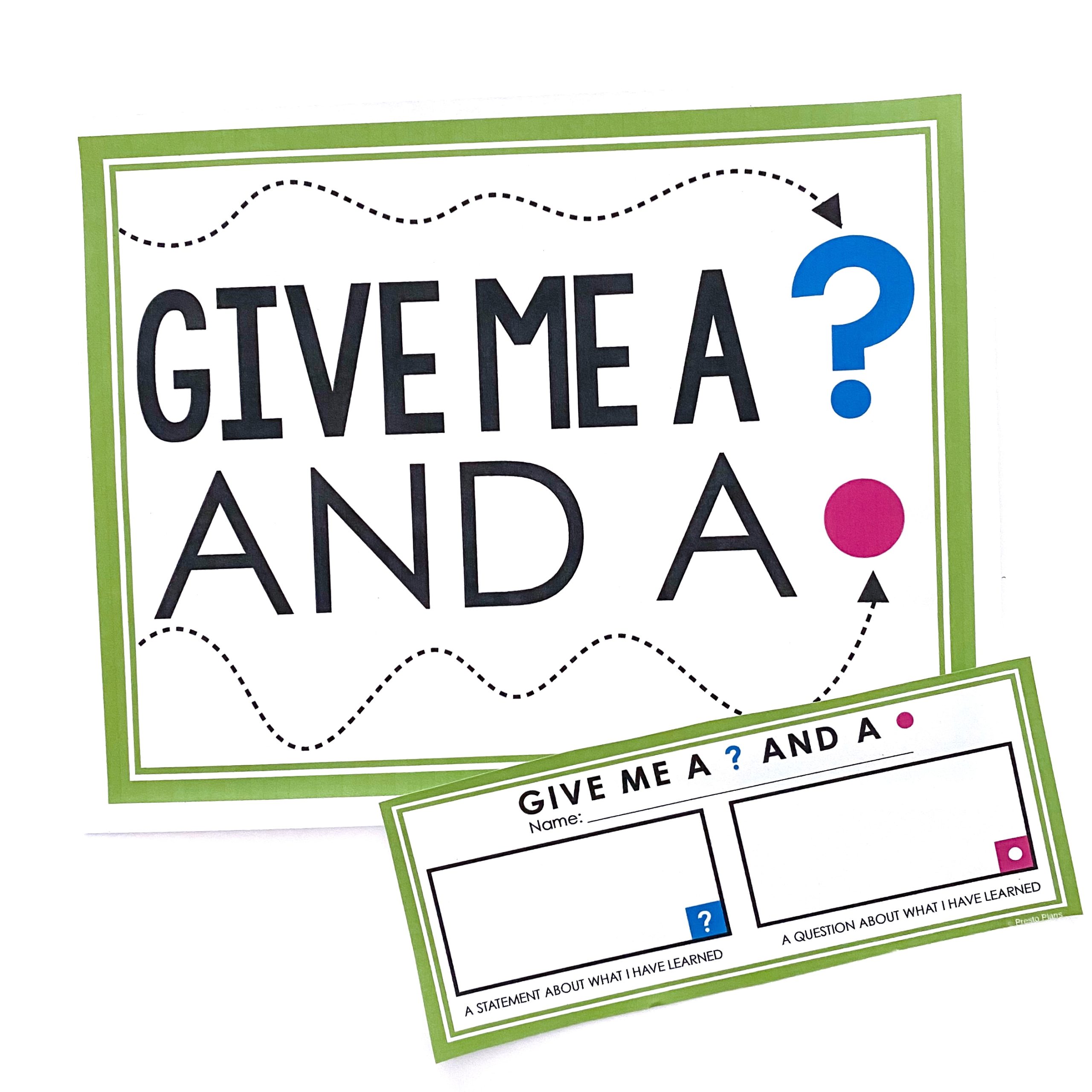
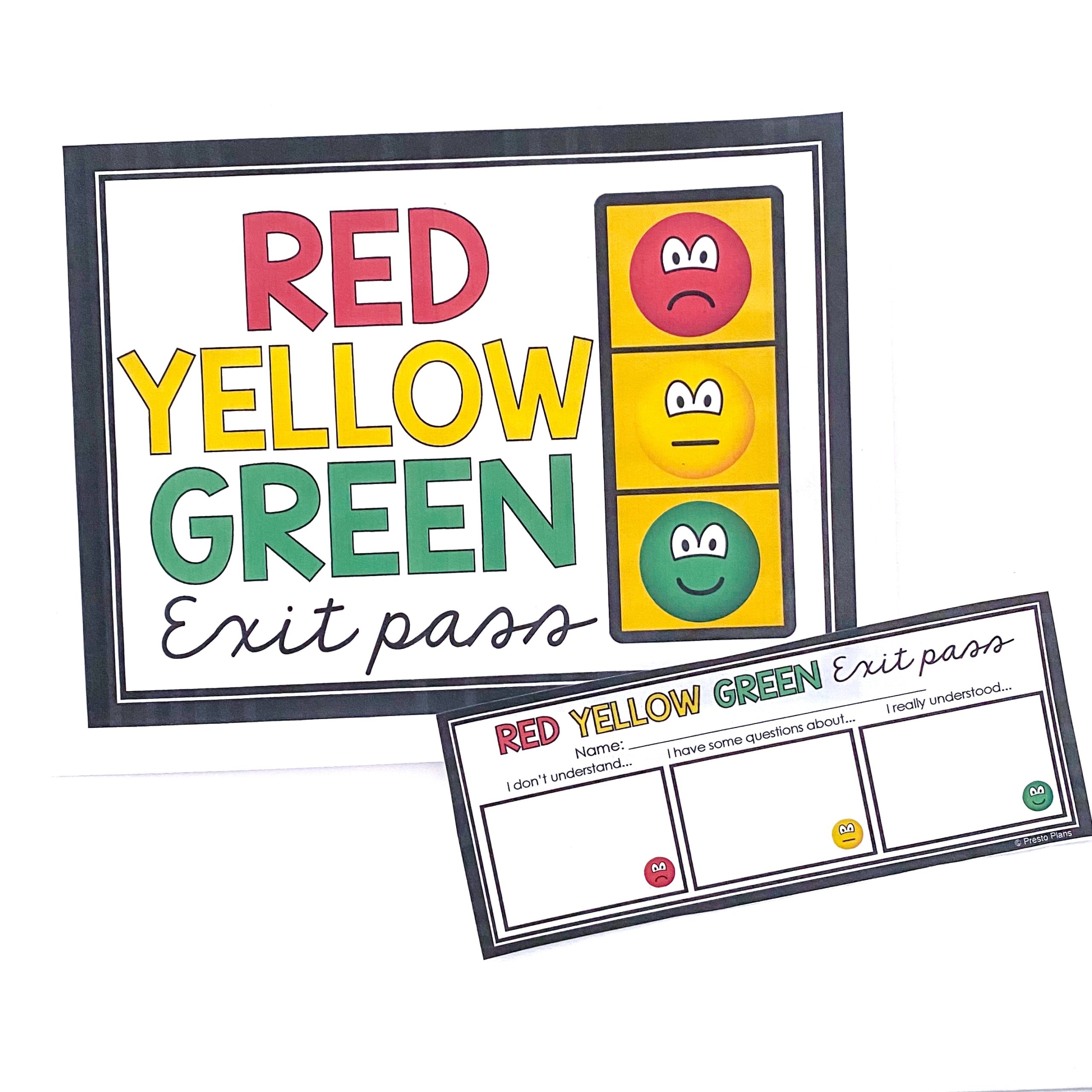
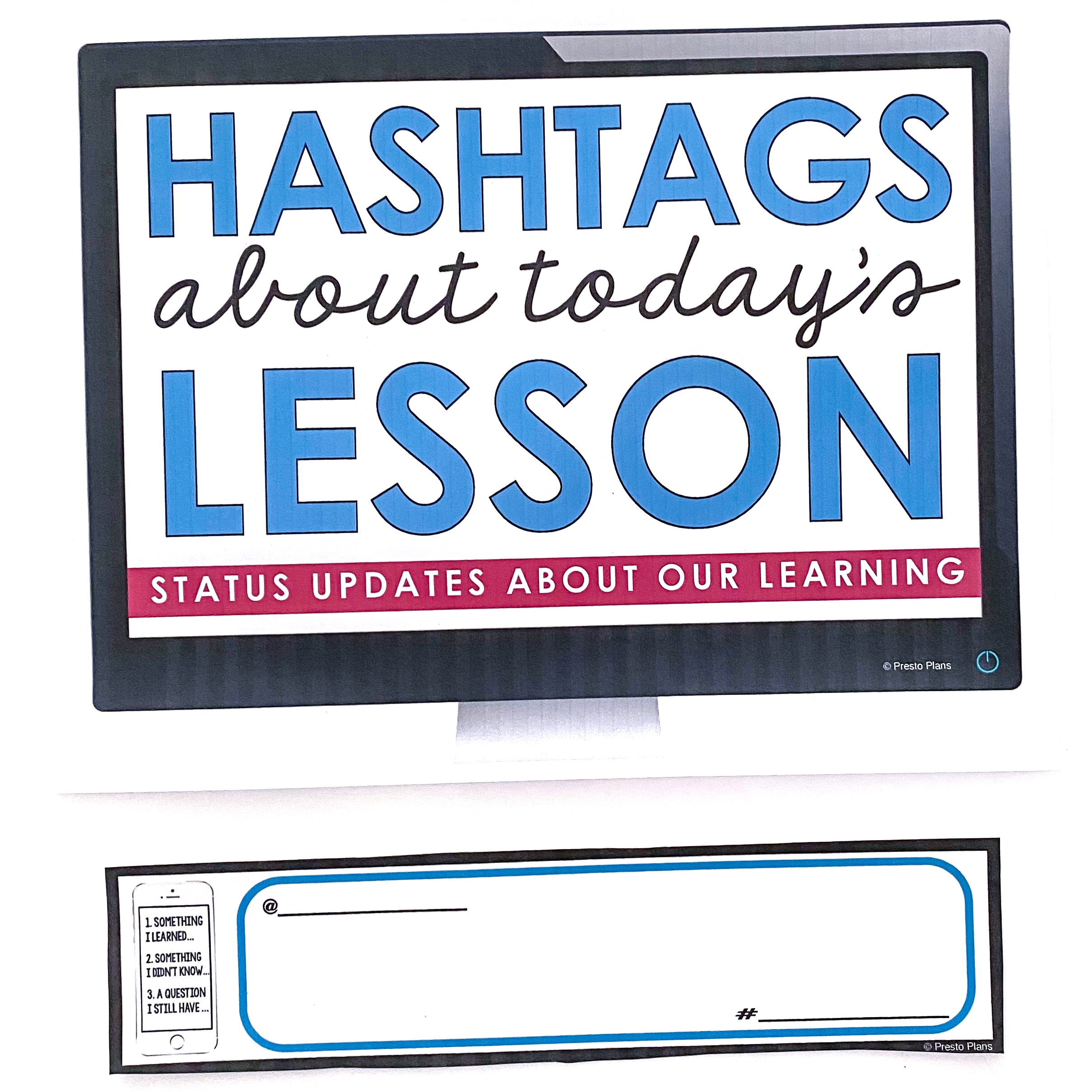
share this post